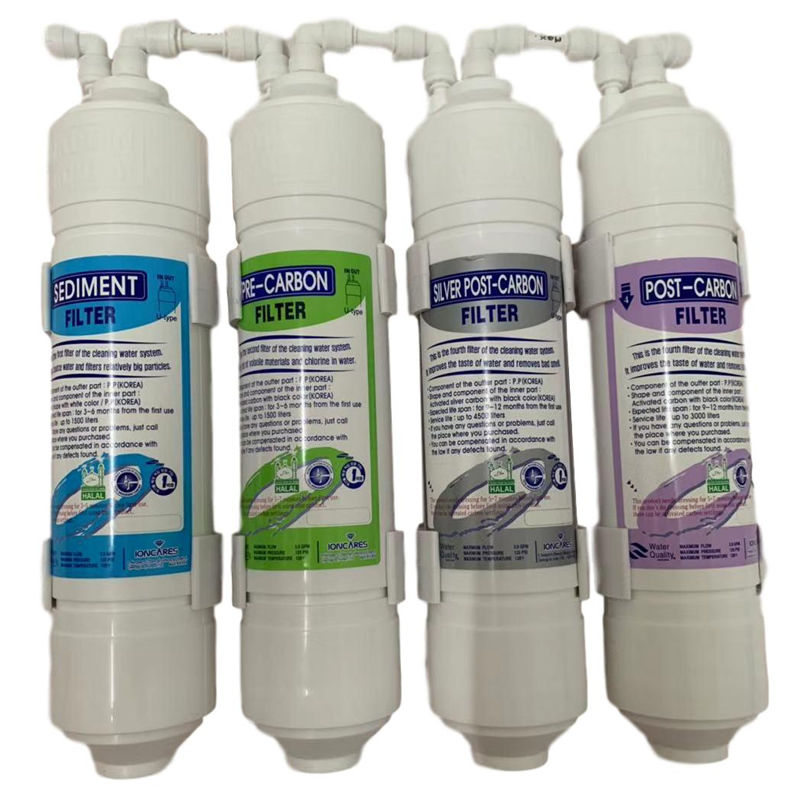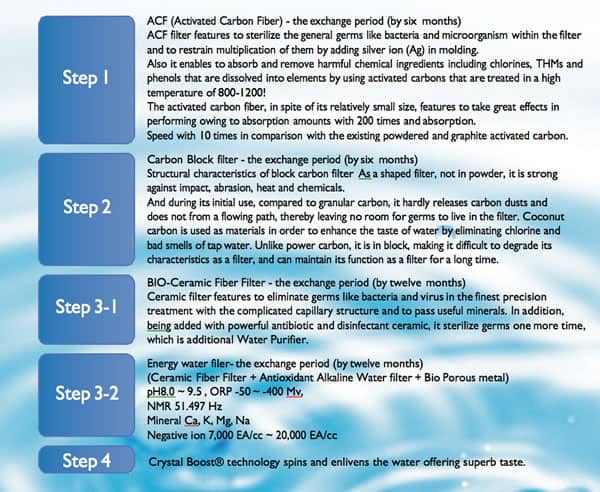Avesa Water Pre-Carbon Filter
Filtration Stage Two - Purification - Carbon filter, 5 micron
This replacement filter keeps the hydrogen ion concentration between 7.5 and 8.5, this alkaline filter removes free radicals which can cause aging in the human body.
Offers an ORP (anti oxidant value) of -300mV.
Has antibiotic qualities. Includes minerals: Ca, K, Mg, Na and offers negative ions to the water. Useful life is 7,200 liters of water.
Effective water purifying quantity: 3300-7200 liters of water.
Japan and South Korea have been way ahead of USA manufacturers when it comes to water treatment equipment. Typical households in these Asian countries filter their tap water and also their shower water. They have high water standards and Avesa Water Filters comply with their Board of Health Agency standards. Their standards meet or exceed NSF and North American criteria.
Removal of Pharmaceuticals
The Avesa Water System is as good as an activated carbon filter system can get. However, from a scientific standpoint we can not certify that all pharmaceuticals are removed. Pharmaceuticals are found in parts per billion concentration, and are outside the scope of a typical lab test.
The two carbon filters, especially the carbon block filter, do tackle a wide variety of contaminants, especially when coupled with the bio-porous ceramic material. We know that the advanced carbon block design works on pesticides, etc. and the ceramic filter is a form of nano-filtration.
We can therefore safely deduce that some of the pharmaceuticals are indeed filtered.
Trace Levels of Five Different Pharmaceuticals are Reduced
- Hormones/Steroids including prednisone, prednisolone, progesterone and cortisol.
- Antidepressants including fluoxetine, prescribed to treat a variety of conditions, including depression and other mental/mood disorders.
- Painkillers including ibuprofen and naproxen.
- Antibiotics including ciprofloxacin, used to prevent certain infections caused by bacteria, as well as sulfamethoxazole and trimethoprim, which are used to treat a wide variety of bacterial infections including pneumonia, and urinary tract and intestinal infections.
- Anti-anxiety medication including meprobamate, a treatment used to relieve nervousness or tension that exceeds stress of everyday life.
Despite their unique pharmacological properties, pharmaceuticals respond to treatment no differently from other organic chemicals, with removal rates depending on their physicochemical properties and the treatment technology being used. Conventional water treatment processes, such as chlorination, can remove approximately 50% of these compounds, whereas more advanced treatment processes, such as ozonation, advanced oxidation, activated carbon, nanofiltration and reverse osmosis, can achieve higher removal rates; reverse osmosis, for example, can remove more than 99% of large pharmaceutical molecules.
Avesa Water Pre-Carbon Filter

